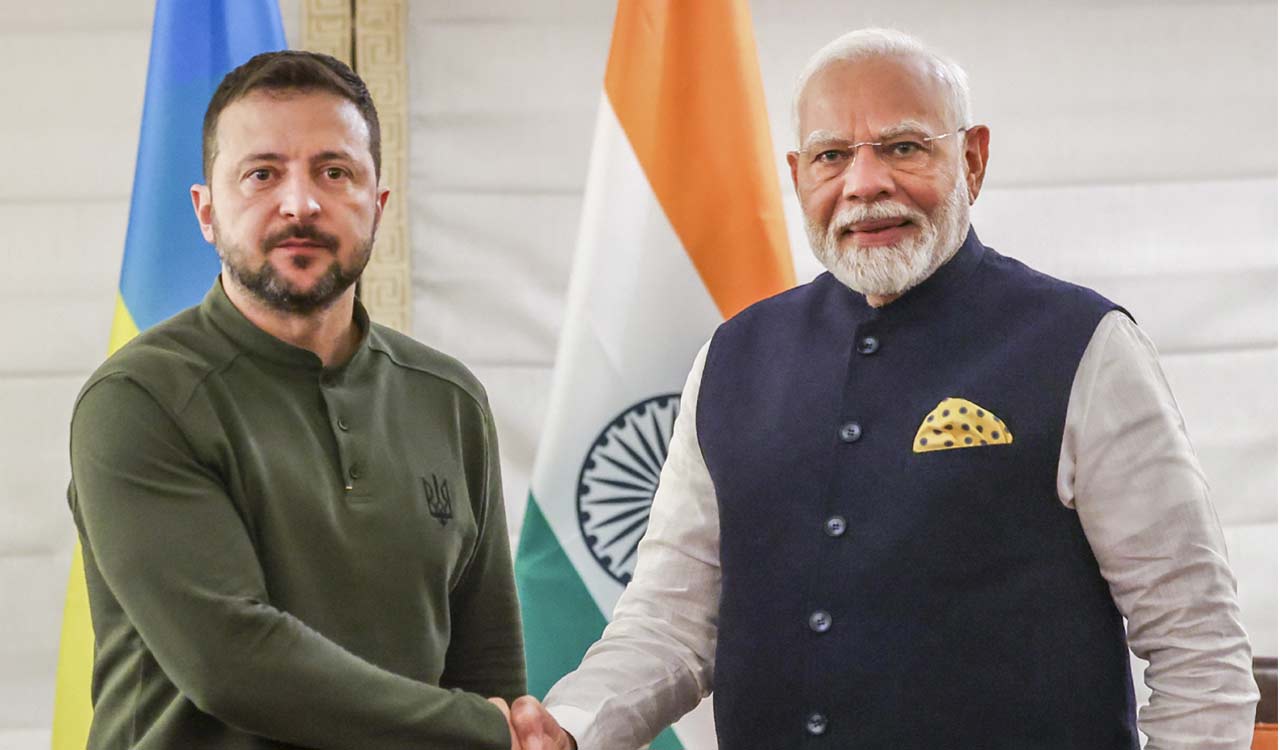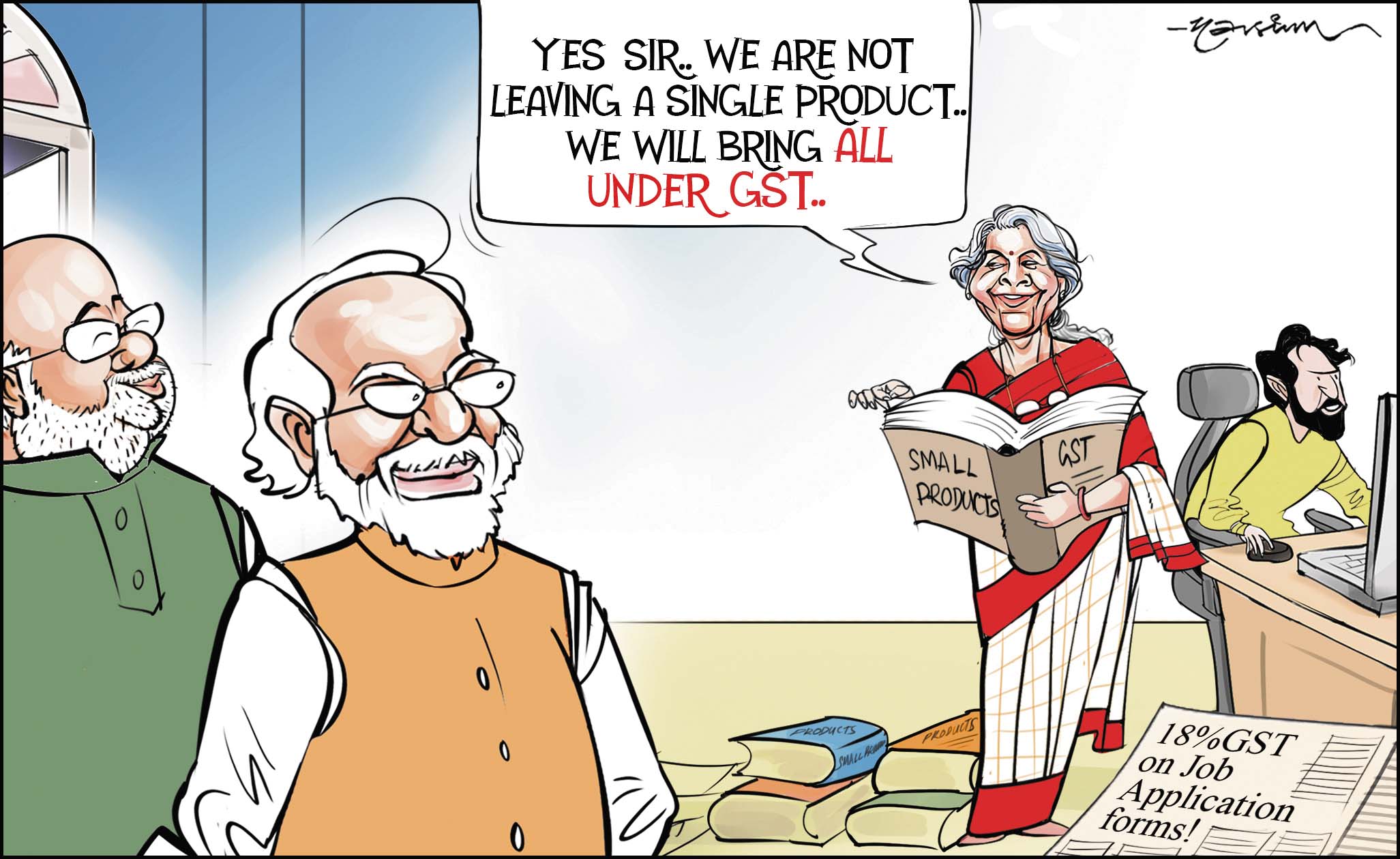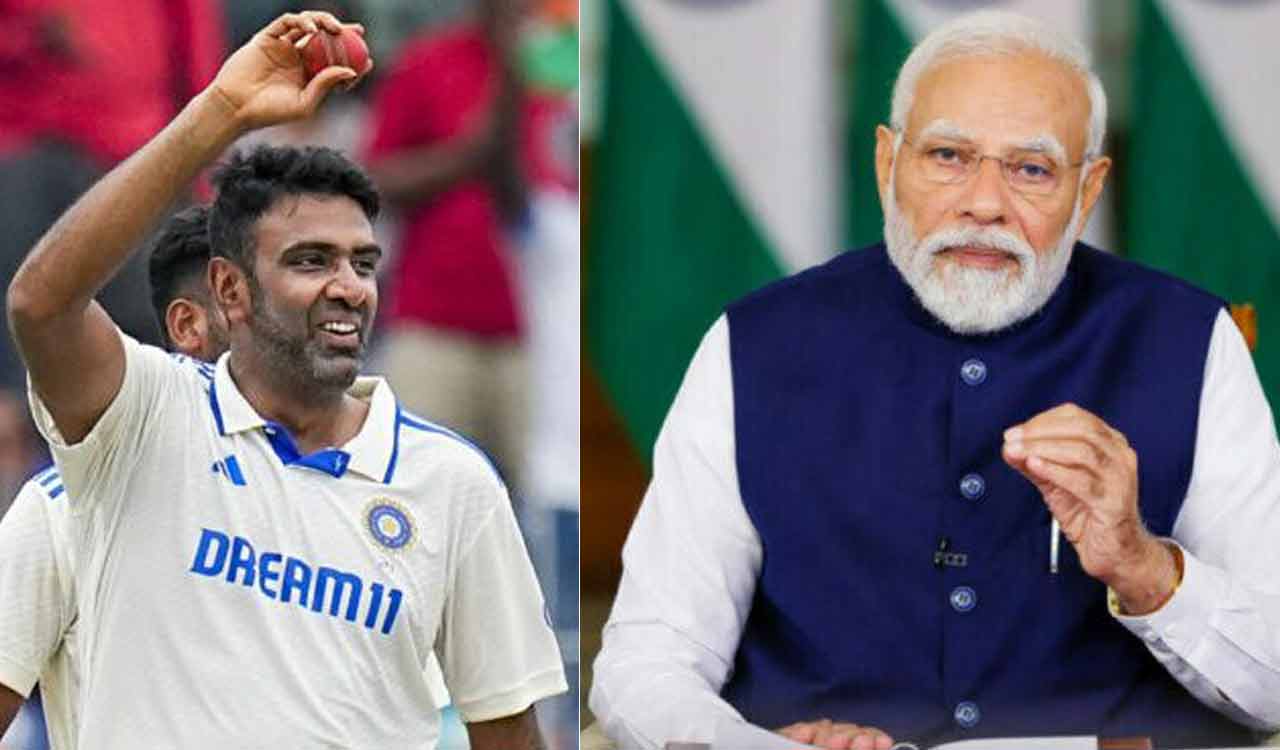Editorial: India, the peacemaker
India’s balanced approach to international diplomacy positions it as a key player in peace efforts

India has the required diplomatic heft to play the role of a peacemaker in the ongoing Russia-Ukraine war. This was amply demonstrated during the engagements Prime Minister Narendra Modi had with Ukrainian President Volodymyr Zelenskyy and Russian President Vladimir Putin, and the recent meeting with United States President Joe Biden — all focused on finding a lasting and peaceful resolution to the vexed conflict. Refusing to be caught in a binary choice, India has taken a pragmatic approach throughout the conflict and has been consistently rooting for a negotiated settlement of all disputes and immediate cessation of hostilities. There has been a growing international expectation that India take a more proactive role in global peace efforts, particularly the Russia-Ukraine war. India is one of the few countries that is engaging both sides of the geopolitical schism over Ukraine — the West as well as the Eurasian leadership. New Delhi’s long-held positions on non-alignment and strategic autonomy, which the NDA government has largely carried forward during the war with its abstention votes at the United Nations and refusal to accept western sanctions, help its image as an unbiased and honest mediator. Besides, it is an important voice for the Global South and recently ensured that its G-20 presidency focused on issues like energy and food security that matter to the developing world rather than the war itself. As a result, the increase in India’s intake of Russian oil, leading to a six-fold increase in bilateral trade, has been projected as an assertion of its principles rather than profiteering.
India’s approach to the Russia-Ukraine conflict has been guided by its commitment to peace and dialogue, and its outreach has been multifaceted. Modi’s call for peace has been consistent throughout the conflict. In September 2022, during the Shanghai Cooperation Organization (SCO) Summit in Uzbekistan, Modi told Putin that the era of wars was over and underscored the importance of dialogue and diplomacy in resolving the crisis. A year later, during his visit to Moscow, he again spoke about the urgent need for peace negotiations, asserting that a solution to the Ukraine conflict was not possible on the battlefield, and that peace talks do not succeed amid bombs, guns and bullets. He also expressed New Delhi’s willingness to support peace efforts in all possible ways. During his recent visit to Kyiv where he met Zelenskyy, it was made clear that India was willing to play an active role in promoting peace. India’s balanced approach to international diplomacy, with open lines of communication with both Russia and Ukraine, positions it as a key player in potential peace efforts. With the BRICS summit scheduled in Russia’s Kazan next month, India is expected to remain at the forefront of diplomatic efforts to mediate peace. National Security Advisor (NSA) Ajit Doval’s recent meeting with Putin reflects the trust both sides place in India’s diplomatic role.
- Tags
- Joe Biden
- Narendra Modi
- NDA
- Russia
Related News
-
Save future of Telangana NEET PG aspirants, IMA writes to CM Revanth Reddy
40 mins ago -
Telangana techie loses Rs 4.15 lakh to online gold trading fraud
1 hour ago -
Hyderabad: Couple working as house help at doctor’s residence held for theft
1 hour ago -
Hyderabad auto driver foils attempt to kidnap young woman, five held
2 hours ago -
Haiti gang attack on journalists covering hospital reopening leaves 2 dead, several wounded
3 hours ago -
21 dead as Mozambique erupts in violence after election court ruling
4 hours ago -
Sandhya Theatre stampede case: Allu Arjun questioned for 3 hours by Chikkadpallly police
12 hours ago -
Telangana: TRSMA pitches for 15% school fee hike and Right to Fee Collection Act
12 hours ago




